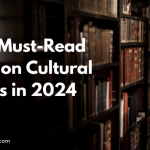Table of Contents
- Introduction
- 1. “Educated” by Tara Westover
- 2. “How to Win Friends and Influence People” by Dale Carnegie
- 3. “Mindset: The New Psychology of Success” by Carol S. Dweck
- 4. “The Element: How Finding Your Passion Changes Everything” by Ken Robinson
- 5. “The Power of Habit” by Charles Duhigg
- 6. “Grit: The Power of Passion and Perseverance” by Angela Duckworth
- 7. “Thinking, Fast and Slow” by Daniel Kahneman
- Conclusion
- FAQs
Introduction
Education is a lifelong journey filled with challenges and opportunities for growth. Whether you’re a student, a professional looking to upskill, or simply someone passionate about learning, the right resources can make all the difference. In this article, we’ll explore seven transformative non-fiction books that can reshape your education journey, inspire you to think differently, and equip you with the knowledge to thrive.
“Education is the most powerful weapon which you can use to change the world.” – Nelson Mandela
1. “Educated” by Tara Westover
Tara Westover’s memoir, Educated, details her journey from growing up in a strict and abusive household in rural Idaho to earning a PhD from Cambridge University. This book serves as a powerful reminder of the transformative power of education and the importance of pursuing knowledge against all odds.
Key Takeaways:
- Education can break the cycle of poverty and ignorance.
- The importance of self-discovery and questioning one’s beliefs.
Educated challenges readers to reflect on their educational experiences and consider the lengths they would go to attain knowledge.
“Your life is your story, and the adventure ahead of you is the journey to fulfill your own purpose and potential.” – Kerry Washington
Related Resources
2. “How to Win Friends and Influence People” by Dale Carnegie
Dale Carnegie’s classic book has been a cornerstone in personal development since its publication in 1936. It teaches essential communication skills and relationship-building techniques that are crucial in both academic and professional settings.
Key Takeaways:
- The significance of empathy in communication.
- Strategies for effective persuasion and influence.
By honing your interpersonal skills, you can enhance your educational journey and foster meaningful connections with peers and mentors.
“Communication works for those who work at it.” – John Powell
Related Resources
3. “Mindset: The New Psychology of Success” by Carol S. Dweck
In Mindset, psychologist Carol Dweck explores the concept of “fixed” versus “growth” mindset. She argues that having a growth mindset—believing that abilities and intelligence can be developed—can lead to greater achievement in education and life.
Key Takeaways:
- Embracing challenges as opportunities for learning.
- The impact of mindset on motivation and resilience.
Adopting a growth mindset can help you overcome obstacles and view failure as a part of the learning process.
“It’s not that I’m so smart, it’s just that I stay with problems longer.” – Albert Einstein
Related Resources
4. “The Element: How Finding Your Passion Changes Everything” by Ken Robinson
Sir Ken Robinson argues that discovering your passion is vital for achieving fulfillment in education and beyond. In The Element, he explores how passion and talent intersect to create a fulfilling life.
Key Takeaways:
- The importance of aligning education with personal interests.
- Strategies for identifying and nurturing your passions.
This book encourages readers to seek out their unique talents and passions, making learning a more engaging and meaningful experience.
“Passion is the difference between having a job or having a career.” – Unknown
Related Resources
5. “The Power of Habit” by Charles Duhigg
Charles Duhigg’s The Power of Habit delves into the science of habit formation and how understanding habits can lead to positive change in our lives. This book is particularly beneficial for students and professionals looking to improve productivity and learning efficiency.
Key Takeaways:
- The habit loop: cue, routine, reward.
- Strategies for changing bad habits and cultivating good ones.
By applying the principles in this book, you can create effective study habits and routines that enhance your educational experience.
“Successful people are simply those with successful habits.” – Brian Tracy
Related Resources
6. “Grit: The Power of Passion and Perseverance” by Angela Duckworth
Angela Duckworth’s Grit emphasizes the importance of passion and perseverance in achieving long-term goals. This book is a must-read for anyone facing challenges in their educational pursuits.
Key Takeaways:
- Grit is a stronger predictor of success than talent.
- Strategies to develop resilience and determination.
Duckworth’s insights can empower you to push through obstacles in your educational journey, reminding you that persistence often leads to success.
“Effort counts twice. It’s not just talent that counts, but effort too.” – Angela Duckworth
Related Resources
7. “Thinking, Fast and Slow” by Daniel Kahneman
Nobel laureate Daniel Kahneman’s Thinking, Fast and Slow explores the dual systems of thought that drive our decisions: the fast, intuitive system and the slower, more deliberate one. This book is essential for anyone looking to enhance critical thinking and decision-making skills.
Key Takeaways:
- Understanding cognitive biases and how they affect judgment.
- Strategies for improving decision-making processes.
By applying the concepts in this book, you can enhance your analytical skills and become a more effective learner.
“The greatest human strength is our ability to think critically.” – Unknown
Related Resources
Conclusion
These seven non-fiction books provide valuable insights and strategies that can significantly enhance your educational journey. Whether you’re looking to improve your mindset, develop communication skills, or cultivate perseverance, each of these books offers unique tools and perspectives to help you succeed. Remember, education is not just about acquiring knowledge; it’s about growing as an individual and finding your path in the world.
“Education is not preparation for life; education is life itself.” – John Dewey
FAQs
Q1: How can I choose the right book for my educational journey?
A1: Consider your current challenges and areas where you want to grow. Whether it’s improving your study habits or developing interpersonal skills, choose a book that aligns with your goals.
Q2: How can I implement the lessons from these books?
A2: Start by taking notes while reading, and then create actionable steps to apply what you’ve learned. Set specific goals and track your progress to stay motivated.
Q3: Are there any online courses related to these books?
A3: Yes! Many platforms like Coursera and Udemy offer courses inspired by these books. For example, you can find courses on developing a growth mindset or improving communication skills.
Q4: Can these books help in professional development as well?
A4: Absolutely! The skills and insights gained from these books are applicable in both educational and professional settings, making them valuable resources for lifelong learning.
Incorporating these transformative reads into your educational journey can pave the way for personal growth and success. Happy reading!
“Reading is to the mind what exercise is to the body.” – Joseph Addison
Also look for additional enriching literature from different eras to enhance your understanding and appreciation of the written word. For instance, consider exploring Top 7 Ancient Classics Everyone Should Read Today or 10 Essential Postcolonial Classics You Must Read Today.




